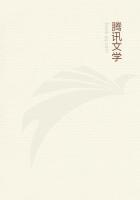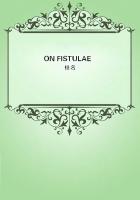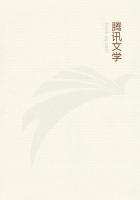In such an atmosphere, one made no great presence of hard work. If the world wants hard work, the world must pay for it; and, if it will not pay, it has no fault to find with the worker. Thus far, no one had made a suggestion of pay for any work that Adams had done or could do; if he worked at all, it was for social consideration, and social pleasure was his pay. For this he was willing to go on working, as an artist goes on painting when no one buys his pictures. Artists have done it from the beginning of time, and will do it after time has expired, since they cannot help themselves, and they find their return in the pride of their social superiority as they feel it. Society commonly abets them and encourages their attitude of contempt. The society of Washington was too ****** and Southern as yet, to feel anarchistic longings, and it never read or saw what artists produced elsewhere, but it good-naturedly abetted them when it had the chance, and respected itself the more for the frailty. Adams found even the Government at his service, and every one willing to answer his questions. He worked, after a fashion; not very hard, but as much as the Government would have required of him for nine hundred dollars a year; and his work defied frivolity.
He got more pleasure from writing than the world ever got from reading him, for his work was not amusing, nor was he. One must not try to amuse moneylenders or investors, and this was the class to which he began by appealing. He gave three months to an article on the finances of the United States, just then a subject greatly needing treatment; and when he had finished it, he sent it to London to his friend Henry Reeve, the ponderous editor of the Edinburgh Review. Reeve probably thought it good; at all events, he said so; and he printed it in April. Of course it was reprinted in America, but in England such articles were still anonymous, and the author remained unknown.
The author was not then asking for advertisement, and made no claim for credit. His object was literary. He wanted to win a place on the staff of the Edinburgh Review, under the vast shadow of Lord Macaulay; and, to a young American in 1868, such rank seemed colossal -- the highest in the literary world -- as it had been only five-and-twenty years before.
Time and tide had flowed since then, but the position still flattered vanity, though it brought no other flattery or reward except the regular thirty pounds of pay -- fifty dollars a month, measured in time and labor.
The Edinburgh article finished, he set himself to work on a scheme for the North American Review. In England, Lord Robert Cecil had invented for the London Quarterly an annual review of politics which he called the "Session." Adams stole the idea and the name -- he thought he had been enough in Lord Robert's house, in days of his struggle with adversity, to excuse the theft -- and began what he meant for a permanent series of annual political reviews which he hoped to make, in time, a political authority.
With his sources of information, and his social intimacies at Washington, he could not help saying something that would command attention. He had the field to himself, and he meant to give himself a free hand, as he went on. Whether the newspapers liked it or not, they would have to reckon with him; for such a power, once established, was more effective than all the speeches in Congress or reports to the President that could be crammed into the Government presses.
The first of these "Sessions" appeared in April, but it could not be condensed into a single article, and had to be supplemented in October by another which bore the title of "Civil Service Reform," and was really a part of the same review. A good deal of authentic history slipped into these papers. Whether any one except his press associates ever read them, he never knew and never greatly cared. The difference is slight, to the influence of an author, whether he is read by five hundred readers, or by five hundred thousand; if he can select the five hundred, he reaches the five hundred thousand. The fateful year 1870 was near at hand, which was to mark the close of the literary epoch, when quarterlies gave way to monthlies; letter-press to illustration; volumes to pages. The outburst was brilliant. Bret Harte led, and Robert Louis Stevenson followed. Guy de Maupassant and Rudyard Kipling brought up the rear, and dazzled the world. As usual, Adams found himself fifty years behind his time, but a number of belated wanderers kept him company, and they produced on each other the effect or illusion of a public opinion. They straggled apart, at longer and longer intervals, through the procession, but they were still within hearing distance of each other. The drift was still superficially conservative. Just as the Church spoke with apparent authority, of the quarterlies laid down an apparent law, and no one could surely say where the real authority, or the real law, lay. Science lid not know. Truths a priori held their own against truths surely relative. According to Lowell, Right was forever on the scaffold, Wrong was forever on the Throne; and most people still thought they believed it. Adams was not the only relic of the eighteenth century, and he could still depend on a certain number of listeners -- mostly respectable, and some rich.
Want of audience did not trouble him; he was well enough off in that respect, and would have succeeded in all his calculations if this had been his only hazard. Where he broke down was at a point where he always suffered wreck and where nine adventurers out of ten make their errors. One may be more or less certain of organized forces; one can never be certain of men. He belonged to the eighteenth century, and the eighteenth century upset all his plans. For the moment, America was more eighteenth century than himself; it reverted to the stone age.















